One of the activities I set my heart on when I took a vacation in Coron was diving with the Dugong. It was in August when we did the dugong watching activity with Dugong Dive Center. However, there is no fixed season here for dugong-watching so you can see them all year round in Coron, Palawan.
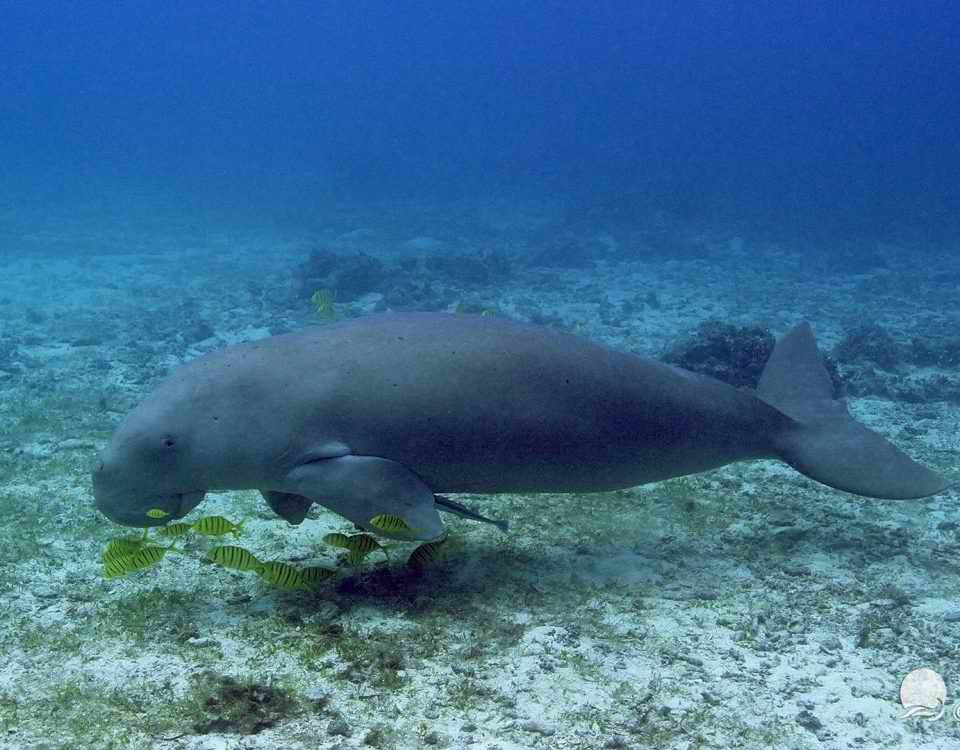
The dugong can live up to 70 years or more, weighing around 400kg and around 3 meters long. Due to their slow rate of reproduction and degradation of habitat, they are vulnerable to extinction. For that reason, there have been initiatives from international organizations such as Community Centered Conversation (C3). Here in Coron, the dugong-watching guidelines were developed by C3 based on the protocols used in Australia and Vanuatu. They also act as an advisory body to the Indigenous Tagbanwa tribes of Calauit Island, and trained a corps of community members as Bantay Dugong (Dugong Monitors). The Bantay Dugong keeps a close eye on the observance of the guidelines during each dugong-watching activity, and collects a small fee from the tourists. This goes to the conservation of the dugong species.
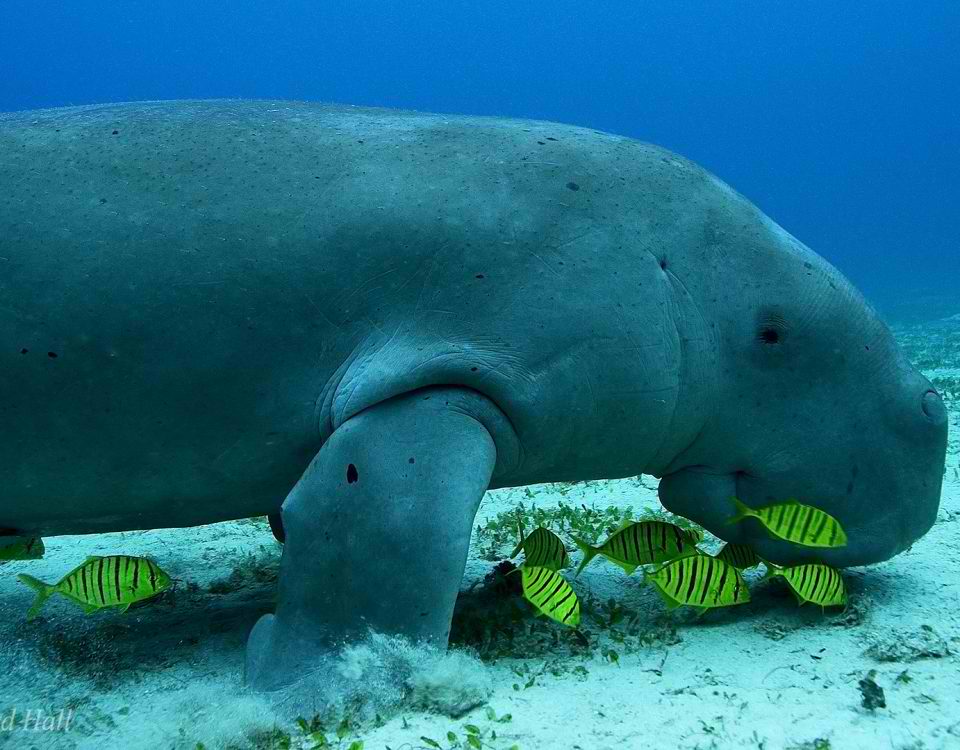
Just like the cows on land, the dugong also known as the sea cow spends most of their day grazing on the sea grass on the shallow sandy sea beds at depth of 5-9 meters. They can eat up to 40kg of seagrass daily! The boats will tie to buoy lines in the sandy bay area in Calauit where the dugongs are usually spotted.
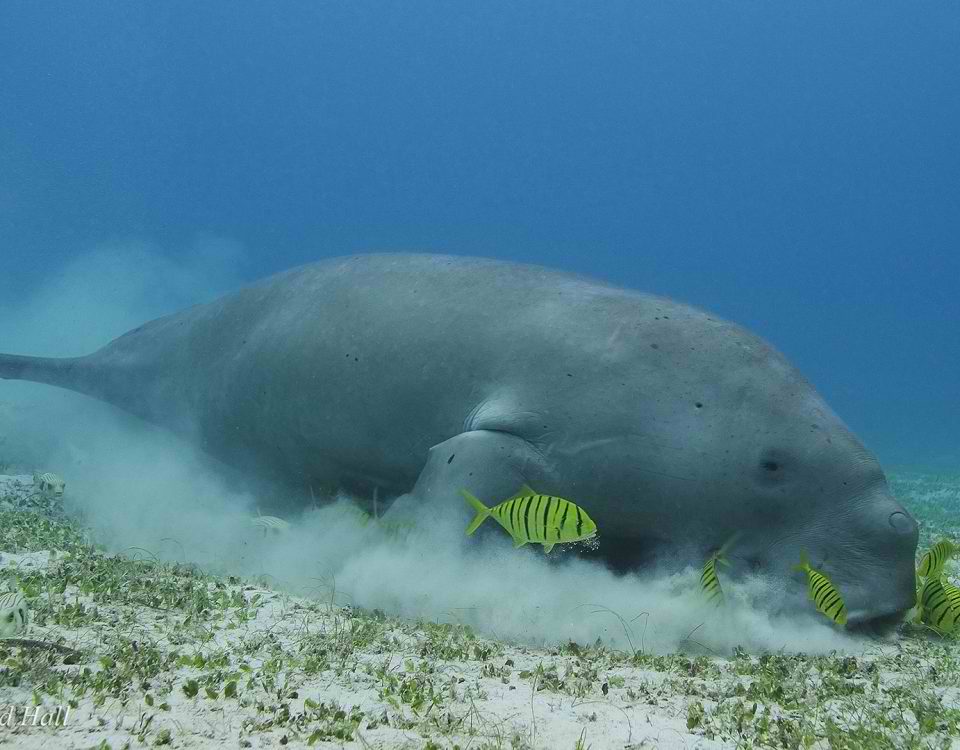
The crews of Dugong Dive Center would position themselves high on the boat so that they can spot any dugong in the area. The dugong can hold their breath for up to 6 minutes, so they will wait for the dugong to surface and take a breath to confirm their presence in the location because we suit up our scuba gear and hit the water, in silence so we do not disturb the dugongs. Only up to 4 persons per group is allowed to get into the water with the dugong upon sighting. When the group is big, we will take turns, with each group having about 15 minutes in the water.
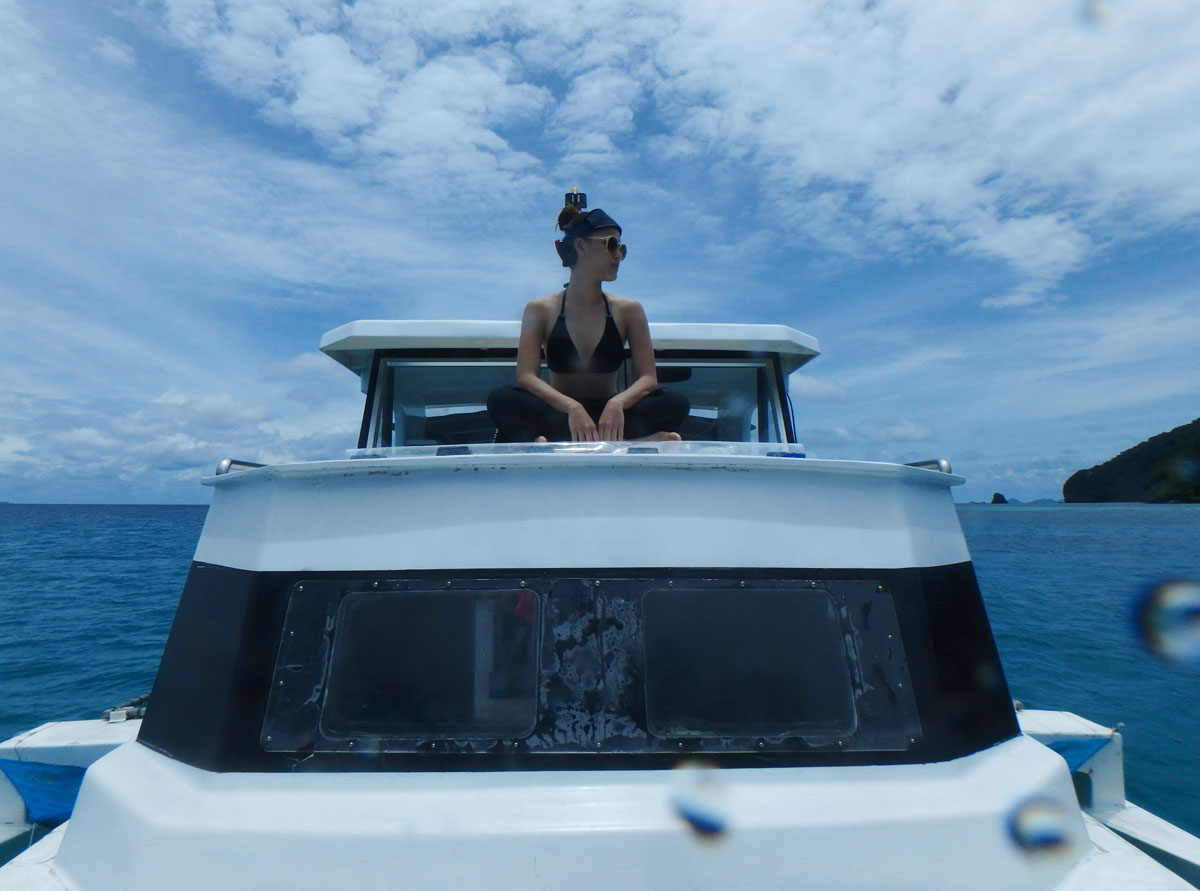
The visibility on that day was only about 10 meters because the sea condition was choppy and the sandy bottom gets stirs up quite a bit. Nevertheless, the dugong was friendly and never got out of our sight. Dugongs are not a very fast swimmer. They normally swim 6 miles per hour, but it can accelerate up to 14 miles per hour when needed.
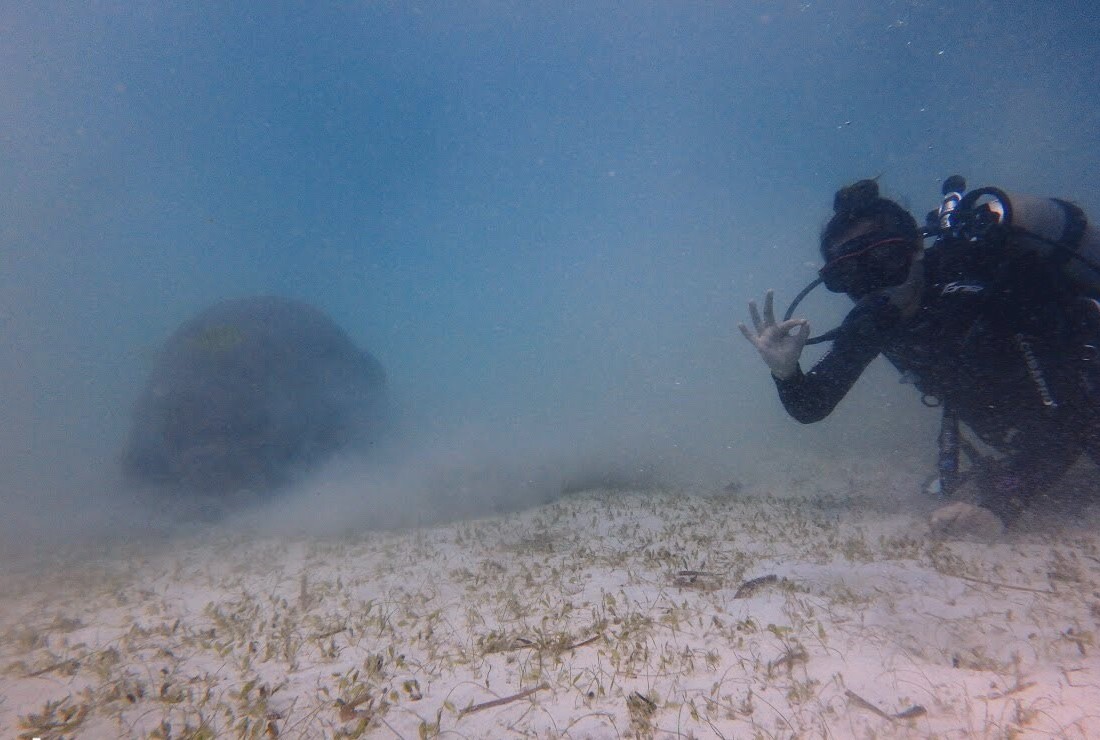
We were advised by the guides to stay at least 5 meters away, and stay close to the sandy bottom while observing the dugong. We also have to position ourselves at the side of the dugongs so that we don’t block their way nor appear to be following them from behind, which might cause the animal to be stressed.
We saw the Dugong on our first dive! What a special and lucky day it was!
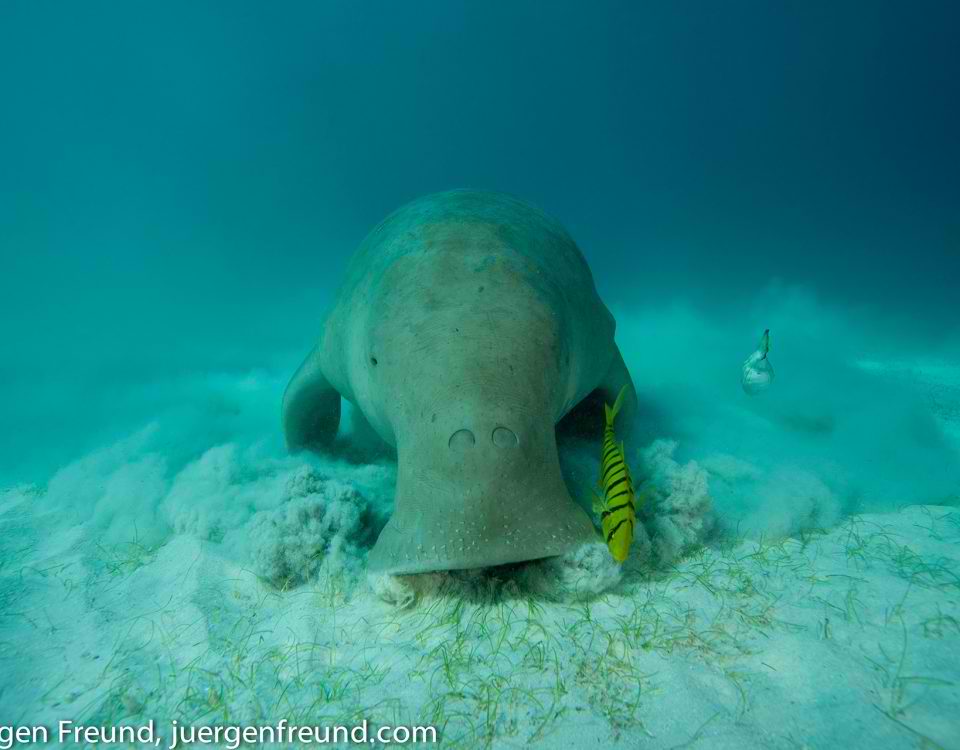
Dugongs have large mouth with upper lip designed for bristling of sea grass. It was an awesome experience being able to watch that up close and personal.
Overall, I would say that diving with the dugong in Coron is definitely an unforgettable experience. I totally recommend coming to amazing Palawan, Philippines and dive with the dugong.
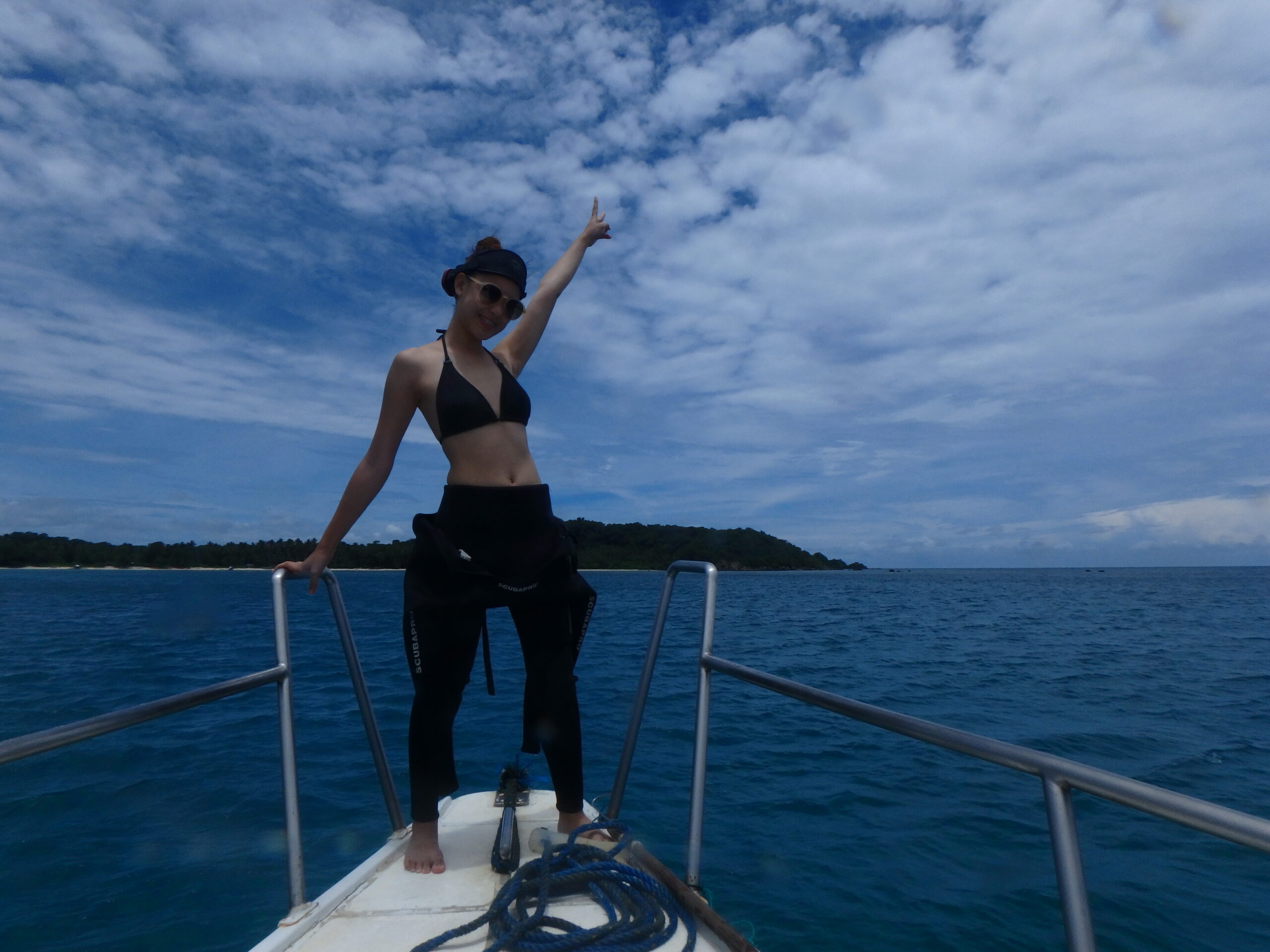
To book your dugong watching activity in Coron, you can send them email at info@dugongdivecenter.com